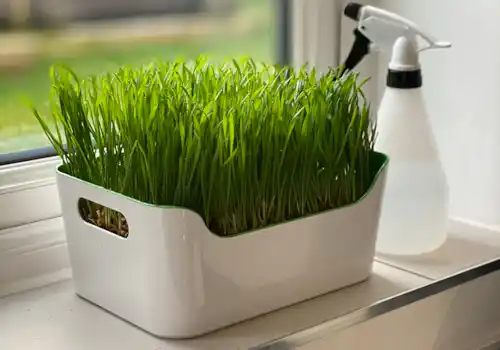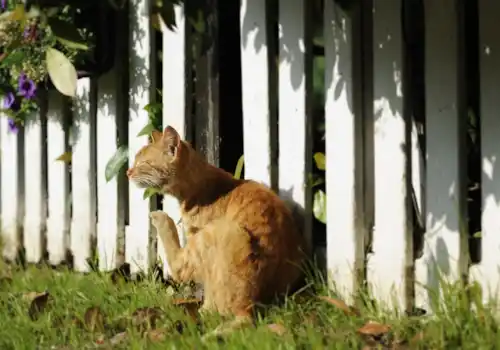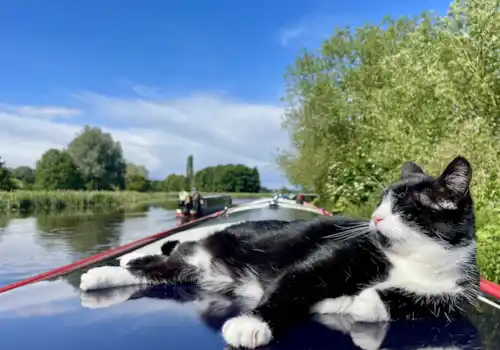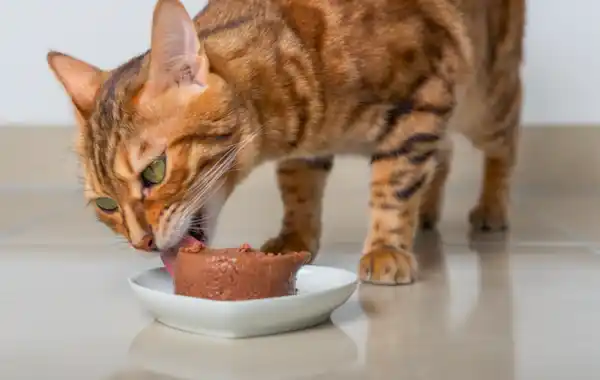All cats are naturally carnivores. But, unlike dogs, which have been domesticated for so long that their physiology has changed from their wild wolf ancestors, cats are still obligate carnivores. This means they evolved to eat meat by necessity.
 You only have to look inside a cat’s mouth to see the evidence that our furry friends are designed to hunt and catch their own prey. Their teeth are perfect for ripping and biting; they don’t have flat molars for chewing, like humans. Their sharp teeth are there to cope with flesh and bones.
You only have to look inside a cat’s mouth to see the evidence that our furry friends are designed to hunt and catch their own prey. Their teeth are perfect for ripping and biting; they don’t have flat molars for chewing, like humans. Their sharp teeth are there to cope with flesh and bones.
Given the chance, a cat will hunt and eat small mammals, amphibians, birds, and reptiles, even insects. In fact, all of our pet cat’s biology shows their evolutionary history as a predator. Their retractable claws used to grasp prey, highly tuned sense of smell and hearing to seek out small animals, and excellent night vision adapted for detecting movement.
While they might chew on grass, they do not gain sustenance from it — chewing grass helps remove irritating hair from their throats. Meat is essential for cats because it contains the nutrients they need to stay healthy. The main ones are taurine, fatty acids, and vitamins A, and B12.
While omnivores can absorb nutrients in both meat and vegetables, cat biology means most vegetables remain undigested. Some also seem to have a very low percentage of meat. Better quality diets tend to have a higher meat content, fulfilling a cat’s requirement for a diet high in protein.
What could happen if I don’t feed my cat meat?
Some people want to feed their pets exclusively on vegetables, for similar reasons people go vegan. But, as cats have no voice to choose, is avoiding meat ignoring their nutritional requirements?
A vegetable broth is unlikely to be palatable to a cat. If they have access to the outdoors, they may source their own food by hunting or begging from neighbours, anyway. Cats are rather good at finding their own food.
Those indoor cats with no access to the outside may refuse to eat a vegetarian meal and go hungry. In part, because cats are small animals, they cannot go as long as we can without food, and may suffer liver problems as a result.
But what happens if a carnivore eats a meat-free meal? The consequences can be serious. In 2013, a kitten in Australia was rushed for emergency veterinary care.
“It was extremely weak and collapsed when it came in,” says vet Leanne Pinfold, from Melbourne, who treated the cat. She discovered the vegan owners fed their kitten only potatoes, rice, and pasta. After Leanne told them to feed their kitten meat, it recovered quickly.
But, does science back up his claims? There have been few studies into plant-based cat food. One review by the University of Winchester concluded that vegan food could work for cats with no underlying health issues. However, it also found that even healthy animals had more alkaline urine while on this diet, due to the natural alkalinity of plants. High alkaline urine is a serious issue, particularly in neutered male cats. Left untreated, it causes pain, swelling, obstructions, and even death.
The largest animal welfare organisation in the UK, the RSPCA, gives clear advice for owners: “Cats are strict carnivores as they depend on some very specific and vital nutrients that are found in meat so can become seriously ill if they are fed a vegetarian or vegan diet.”







